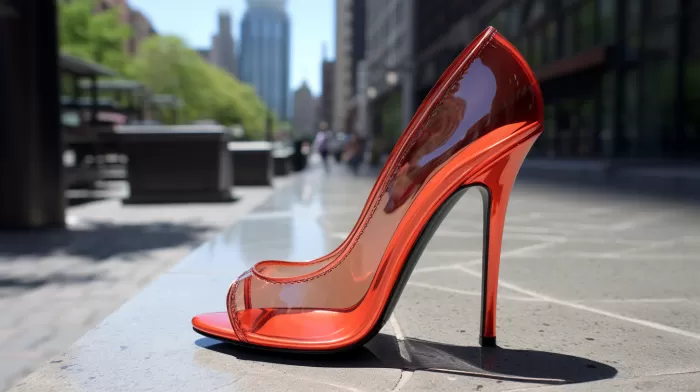You wouldn’t think that something as trivial as the kind of shoes you wear could impact your well-being and influence your daily social interactions, right? Think again. In today’s busy society, something as simple as a pair of shoes could be the deciding factor in how people treat you, especially if you’re a woman wearing high heels. Let’s delve deeper into this bizarre phenomenon.
Perks of Wearing High Heels
High heels are well-known for their orthopedically harmful effects on the arches, tendons, and overall health of your feet and legs. However, they do offer women a fascinating benefit: men are more likely to act helpful towards women wearing high heels. What’s more, these seemingly insignificant objects have been revealed to greatly influence men’s behavior and judgments towards women even in the most ordinary circumstances.
French Study on Heels and Behavior
At the Université de Bretagne-Sud, a study was conducted to evaluate the legitimacy of these social claims. The research team observed what happened when women wearing flat shoes or high heels approached individuals and requested them to answer a survey. Surprisingly, men’s helpfulness and willingness to answer the questions were directly linked to the height of the female survey-taker’s heels. Conversely, the height of the heels had no influence on other women’s helpfulness.
Where did the researchers take this study next? Women were instructed to drop a glove and observe whether or not men would come to their aid by picking it up. Lo and behold, the men were more likely to pick up the glove for women wearing high heels.
Moreover, the researchers discovered that men drinking in a bar initiated conversations more quickly with women wearing high heels as opposed to those with flat shoes. According to research lead, Nicolas Guéguen, “Women’s shoe heel size exerts a powerful effect on men’s behavior”, and results demonstrate that men’s judgments and interactions are consistently influenced by women’s physical traits.
So, Are High Heels Worth It?
Clearly, it seems that high heels hold an inexplicable power over men’s behavior and can improve the extent of their helpfulness towards women. But are these potential social perks worth the slew of health concerns associated with these fashionable yet potentially dangerous accessories? Let’s take a look at factors to consider before slipping on those stilettos for your next outing.
PAIN
High heels force the feet into an unnatural, downward position, which can result in severe foot pain and the formation of bunions. In time, this can lead to tendon damage and poor arch support. Potential ailments stemming from frequent high heel use include Achilles tendonitis, Morton’s neuroma, and metatarsalgia. Keep these risks in mind and prioritize your foot health by making wiser shoe choices. If you must wear high heels, opt for shorter, chunkier heels and make sure that the shoes provide proper arch support.
POSTURE
While high heels can result in a more attractive posture, they force your lower back to curve more than necessary while walking. Over time, this unnatural positioning can result in compressed joints, muscle strain, and lower back pain. To avoid these issues, you should limit your use of high heels, switch to more comfortable shoes whenever you can, and practice proper posture in all aspects of your daily routine.
BALANCE
Wearing high heels forces your body to shift its center of gravity, which can lead to instability and an increased risk of falls. If you wear high heels often, you may be putting yourself at risk for ankle sprains, breaks, and other injuries. To mitigate these risks, consider switching to lower heels or platforms that still add height without overly disturbing your balance.
The Bottom Line
While wearing high heels might temporarily boost your confidence and make you more attractive to the opposite sex, it’s essential to consider the long-term effects that these shoes have on your body. By becoming informed about the potential health issues associated with high heels and finding a more ergonomic and comfortable alternative, you prioritize your well-being and provide yourself with a solid foundation to stand on, both literally and figuratively.



